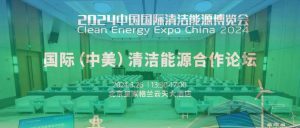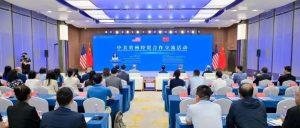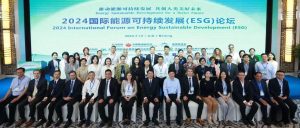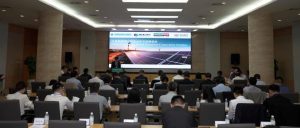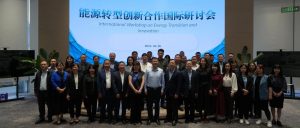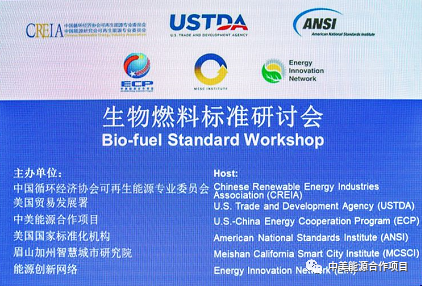
2021年2月2日,由中国循环经济协会可再生能源专业委员会(CREIA)、美国贸易发展署(USTDA)、中美能源合作项目(ECP)、美国国家标准化机构(ANSI)、眉山加州智慧城市研究院(MCSCI)、能源创新网络(EIN)等单位联合举办生物燃料标准国际研讨会在京召开,本次研讨会采用了线上和线下相结合的形式,并通过直播将研讨会同步分享给在线嘉宾与观众。来自国际能源署、美国驻华大使馆、标准机构、行业协会、学术机构和企业代表线上线下共计一百余人参加了本次研讨会。
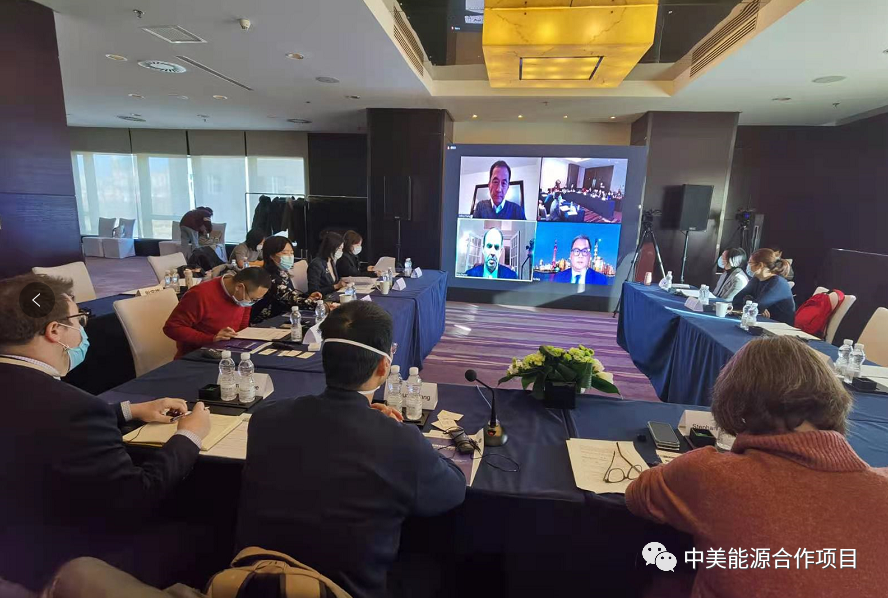
此次会议邀请了中国循环经济协会可再生能源专业委员会执行秘书长李丹女士、美国国家标准化机构中国首席代表许方先生、美国贸易发展署国家经理Alisa Lee 女士、中美能源合作项目董事会联席主席Mark Thurber先生、眉山加州智慧城市研究院张家华先生做了致辞,表达了对本次会议的期望和肯定。
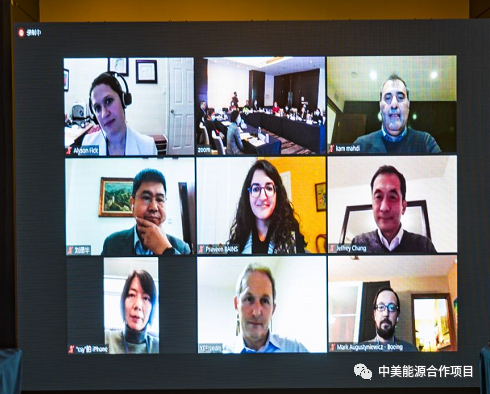
会议邀请了十位国内外知名生物燃料和标准专家就生物燃料行业的标准、政策、技术、前景、可持续发展、应对气候变化中的作用以及面临的挑战做了精彩发言。
加州大学农业和自然资源系生物质能源工作组主席,加州生物质能源合作中心主任StephenKaffka博士认为原料质量、数量和价格对生物能源开发利用至关重要,在加州需要根据不同的生物质原料开发出多元化的产品,同时需要更多政策支持生物质能的发展。
中国石化联合会产业部能源处李顶杰副处长指出截止到2020年,我国燃料乙醇产能达600万吨,我国是全球第三大燃料乙醇消费国,约有四分之一的汽油为乙醇汽油。我国生物柴油产能约为250万吨,生产企业大约有30家,生物航煤在我国则处于起步阶段。
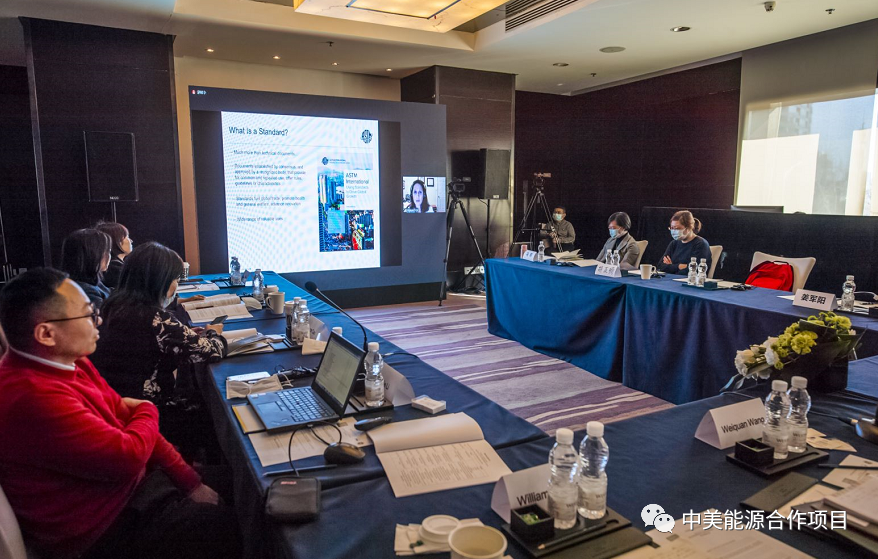
美国材料与试验协会(ASTM)国际技术委员会经理Alyson Fick女士介绍了ASTM在生物能源领域制定了多项标准,包括生物航煤标准D1655-17,D1655-17a等,并强调了如何保证标准的质量。
波音环境战略首席专家Mark AUGUSTYNIEWICZ先生则介绍了波音公司将从机队更换,航线效率提升,使用可再生能源,新一代飞机技术研发等方面减少航空领域的温室气体排放。
清华大学化工系刘德华教授介绍了纤维素乙醇在底物结构、纤维素酶、菌株培育、过程控制、系统集成等方面存在制约因素,其研究团队正在进行相关研究,并取得初步成果。
美国清洁能源技术公司(CETY)首席执行官Kam Mahdi先生介绍了生物质气化的原理,特点和具体案例,并总结了该技术的优势,原料多元化、产品多元化、高附加值、高效率, 也分享了CETY公司目前在中国的一些合作发展计划等。
清华大学低碳能源实验室常世彦副研究员介绍了生物质能结合碳捕集与封存技术(BECCS)的原理,发展潜力,美国伊利诺伊州案例和中国发展BECSS的建议。同时提出应该加强生物燃料的可持续认证工作。
国际能源署能源(IEA)技术和政策部门Praveen Bains女士认为,到2070年全球达到碳中和时,生物能源的贡献为12%,这些贡献中约三分之一是通过生物燃料实现的,而生物燃料未来应用领域包括:航空、航海、重型卡车、公交车,乘用车等。但是生物燃料成本较高,需要政策支持来降低成本。
南加州天然气公司业务发展高级总监YuriFreedman先生指出,在加州空气资源委员会低碳燃料标准(LCFS)和美国环保局可再生燃料标准(RFS)的带动下,加州可再生天然气发展较快,在加州已有多个项目产生的可再生天然气并入了天然气管网。
中国标准化研究院资源环境研究分院生态文明建设研究室徐秉声博士详细介绍了我国生物质能领域标准制定情况,我国参与国际标准的有关情况,以及2021年的重点工作,并强调了需要加强标准的推广应用,发挥标准的作用。
除了精彩的专家主旨报告,各位演讲专家在会议的讨论环节就与会者提出的问题做出了积极回应和补充发言。
本次研讨会是几家主办方就生物燃料标准为主题的首次合作,生物燃料作为可再生能源开发利用的重要方向,其发展前景被各国广泛看好。我们希望这次研讨会能抛砖引玉,为接下来的行业合作与探讨打好基础,与各方合作伙伴一起,从标准到技术到商业项目合作落实,让清洁的生物燃料应用更广泛、更经济、更高效。
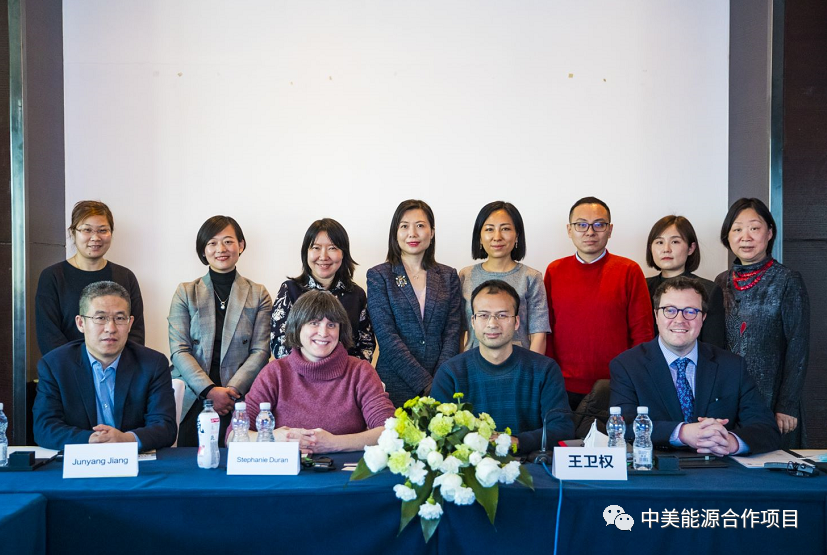
On February 2nd,2021, an International workshop on biofuel standards was held in Beijing jointly by Chinese Renewable Energy Industries Association (CREIA), United States Trade and Development Agency (USTDA), ECP, American National Standard Institute(ANSI), Meishan California Smart City Institute (MCSCI) and Energy Innovation Network (EIN).The workshop has adopted the combination of online and offline forms, andshared to the online guests and audiences through live broadcast. More than 100 online and offline representatives from the International Energy Agency, the U.S. Embassy in China, standards agencies, industry associations, academic institutions and enterprises have attended the workshop.
The workshop has invited Ms. Li Dan, Executive Secretary-General of Chinese Renewable Energy Industries Association; Mr. Xu Fang, Chief Representative of American National Standard Institute in China; Ms. Alissa Lee, National Manager of U.S. Trade and Development Agency; and Mark Thurber, Co-chair of board of directors of US-China Energy Cooperation program; Mr. Jeffrey Zhang from Meishan California Smart City Institute. They have delivered speeches to express their expectationand affirmation for this workshop.
The workshop has invited 10 well-known experts on biofuels and standards,and they have delivered speeches on the standards, policies, technologies, prospects, sustainable development,the role in addressing climate change and the challenges faced by the biofuel industry.
Stephen Kaffka, Director of California Biomass Collaborative and extension specialist in the Department of Plant Sciences at the University of California, Davis has considered that raw material quality, quantity, and price are very important to biological energy development and utilization. In California, diversified products need to be developed according to different biomass raw materials, and more policies are needed to support the development of biomass energy.
Li Dingjie, Deputy Director of China Petroleum and Chemical Industry Association has pointed out that by 2020, China’s fuel ethanol production capacity will reach 6 million tons. China is the third largest fuel ethanol consumer in the world, and the ethanol gasoline has accounted for about a quarter in total gasoline. In China, the production capacity of biodiesel is about 2.5 million tons, and there are about 30 production enterprises. The production of biological aviation coal is still in its infancy.
Ms. Alyson Fick, Manager of InternationalTechnical Committee D02 has introduced that ASTM has developed a number of standards in the field of bio energy, including biological aviation coal standard D1655-17, D1655-17a, etc., and also emphasized how to ensure the quality of the standards.
Mark AUGUSTYNIEWICZ, Principle Strategist Environmental Sustainability, Boeing has introduced that Boeing will reduce greenhouse gas emissions in the aviation field from fleet replacement, route efficiency improvement, adoption of renewable energy, research and development of new generation aircraft technology.
Professor Liu Dehua, Department of Chemical Engineering, Tsinghua University, has introduced the constraints of cellulosic ethanol in substrate structure, cellulase, strain cultivation, process control,system integration and other aspects. His research team is carrying out relevant research and has achieved preliminary results.
Mr. Kam Mahdi, CEO of Clean Energy Technology Inc, has introduced the principles, characteristics and specific cases of biomass gasification, and summarized the advantages of the technology,such as diversified raw materials, diversified products, high added value and high efficiency. He also has shared some cooperation and development plans of CETY in China.
Chang Shiyan, Associate researcher of Low Carbon Energy Laboratory, Tsinghua University, has introduced the principle and development potential of biomass energy combined with carbon capture and storage technology(BECCS). She also presented the case of Illinois in the United States and the suggestion of BECCS development in China. At the same time, she has pointed out that the sustainable certification of biofuels should be strengthened.
Ms. Praveen Bains, Clean Energy Modeller,Energy Technology and Policy division, International Energy Agency has argued that when the world reaches carbon neutrality in 2070, the contribution of bio energy will be 12%. About one third of these contributions will be realizedthrough biofuels, and the future application fields of biofuels includes aviation, navigation, heavy trucks, buses, passenger cars, etc. However, the cost of biofuels is still high, and policy support is needed to reduce the cost.
Yuri Freedman, Senior Director of Business Development Southern California Gas Company, has pointed out that, driven by LCFs and RFs, renewable natural gas has developed rapidly in California, and the renewable natural gas generated by several projects in California havebeen incorporated into the natural gas pipeline network.
Dr. Xu Bingsheng, Director of Ecological Civilization Construction Research Office, Resources and environment branch of China National Institute of Standardization has introduced the formulation of standards in the field of biomass energy in China, the relevant situation of China’s participation in international standards, and the key work in 2021. He has also stressed the need of strengthening the promotion and application of standards and giving full play to the role of standards.
Apart from the wonderful reports, the experts also have made responses and supplementary speeches to the questions raised by the participants in the discussion session.
This workshop is the cooperation of several organizers for the first time about biofuel standard. Biofuel has a promising future as an important direction for the development and utilization of renewable energy. We hope that this seminar can establish a good foundation for further cooperation. In the future, we want to cooperate with partners about standards, technology and commercial projects, in order to make clean biofuels more widely used, more economical and more efficient.


